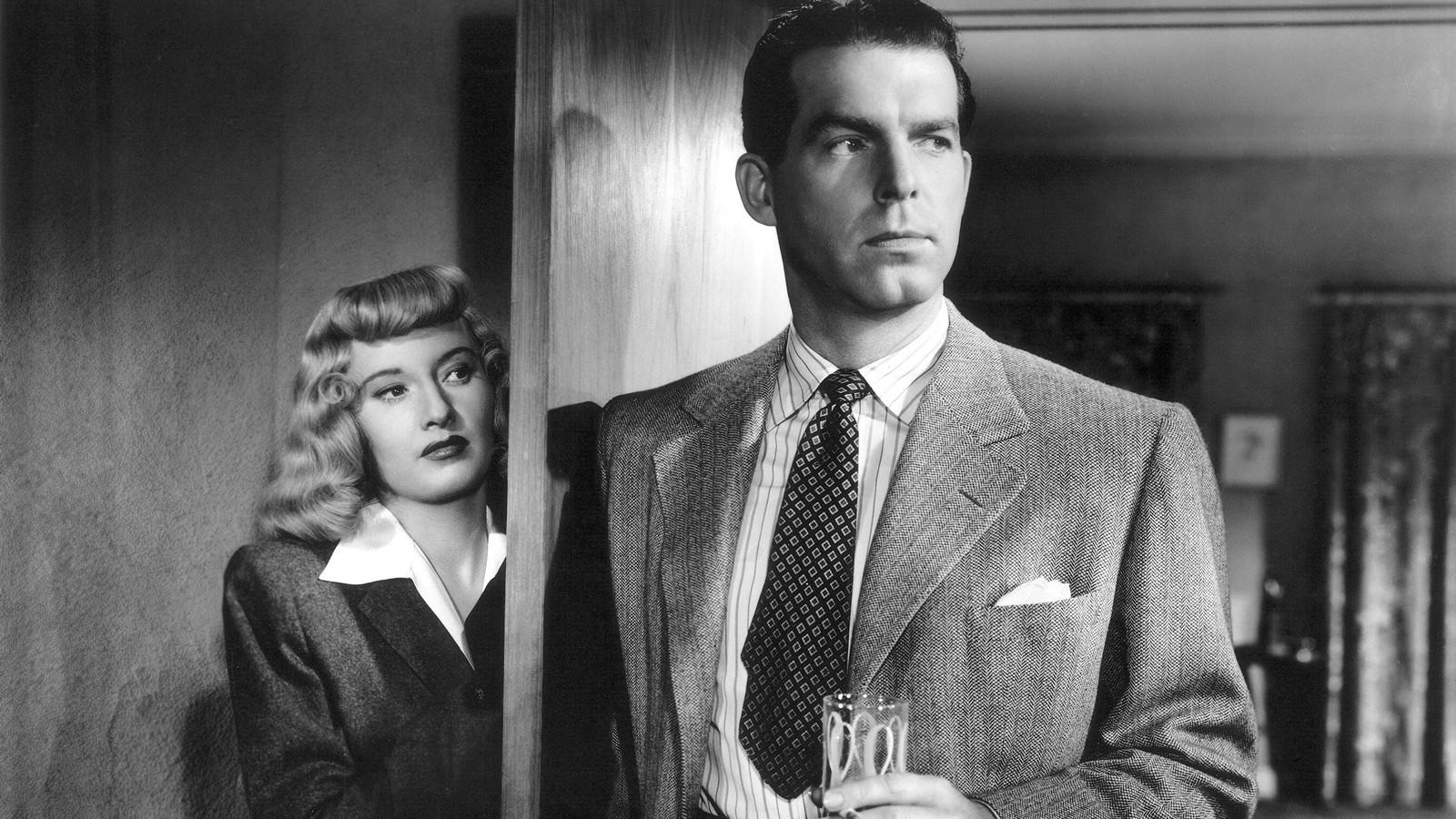Double Trouble
The best film noir centers on fate. Characters are destined to commit a crime because they can’t escape their past. Or a fatal flaw keeps them from seeing the obvious truth, so the tension builds as we’re unable to warn the characters, as we might be able to do in real life.
Double Indemnity (1944) is almost a textbook film noir. The voice over and flashbacks reinforce the inevitability of the outcome. We already know Walter Neff (played by Fred MacMurray) has committed a crime, has been shot, and will likely be caught. As we watch the flashbacks, we accept the inevitable outcome, knowing nothing can prevent him from being used by Phyllis Dietrichson (played by Barbara Stanwyck).
With the whodunit out of the way, we can sit back and enjoy the unfolding story. Walter’s self assurance and mocking humor are seen for what they are — a cover for a weak character that’s no match for Phyllis’ cunning manipulation.
Double Indemnity was only the third film that Billy Wilder had directed, though he had already made his mark in Hollywood as a writer for such classic films as Midnight (1939), Ninotchka (1939), Hold Back the Dawn (1941), and Ball of Fire (1941).
The movie is based on a James M. Cain story which first appeared in 1935 in Liberty Magazine. Cain was not available to work on the screenplay, so Wilder called in novelist Raymond Chandler, who is best known today for creating the character of private detective Philip Marlowe.
Chandler had a great ear for dialogue. He also knew how to successfully extend a metaphor far beyond what anyone thought was humanly possible. Wilder knew how to take a complicated plot and make it completely understandable when transferred to the screen. He was also a master of restrained cynicism. Together they wrote one of the best scripts of the 1940s.
Here’s a small sample:
Phyllis: Mr. Neff, why don’t you drop by tomorrow evening about eight-thirty. He’ll be in then.
Walter: Who?
Phyllis: My husband. You were anxious to talk to him weren’t you?
Walter: Sure, only I’m getting over it a little. If you know what I mean.
Phyllis: There’s a speed limit in this state, Mr. Neff. Forty-five miles an hour.
Walter: How fast was I going, officer?
Phyllis: I’d say about ninety.
Walter: Suppose you get down off your motorcycle and give me a ticket.
Phyllis: Suppose I let you off with a warning this time.
Walter: Suppose it doesn’t take.
Phyllis: Suppose I have to whack you over the knuckles.
Walter: Suppose I bust out crying and put my head on your shoulder.
Phyllis: Suppose you try putting it on my husband’s shoulder.
Walter: That tears it.
With Double Indemnity, everything works together in lockstep — the script, the direction, the acting, the lighting, everything. Elements from this movie are copied and adapted every decade, as new directors strive to rekindle the magic. None have surpassed it. And why bother? When we have the original to enjoy and cherish.
Double Indemnity
(1944; directed by Billy Wilder)
Universal Studios (Blu-ray and DVD)
Sunday, August 25 at 8:00 p.m. eastern on Turner Classic Movies
Reviews